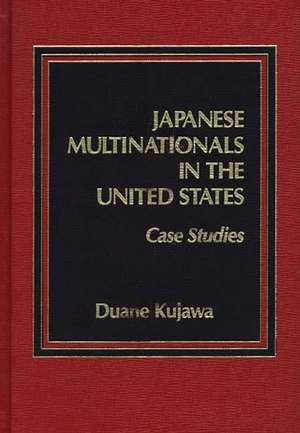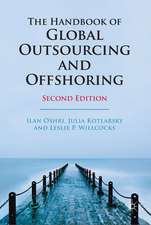Japanese Multinationals in the United States: Case Studies
Autor Duane Kujawaen Limba Engleză Hardback – 31 mai 1986
This study focuses on the management/labor interface within the context of the foreign direct investor in the United States, eespecially the Japanese. Utilizing case studies and interviews, the author examines both the effects of Japanese multinationals on U.S. workers' interests, and the effects of the U.S. work environment on Japanese multinationals. Three basic questions permeated the research: How do labor and management considerations come together as key strategic and operating decisions are made and implemented by Japanese multinationals in the United States? How do Japanese experiences compare to the experiences of other foreign-owned and domestic firms? What do these experiences portend regarding U.S. labor's interests in jobs, income, unionization, etc., Japanese firms' interests in being able to compete successfully in the U.S. market, and the U.S. national interest in promoting employment, expanding incomes, competitive markets, and so forth? Findings in both regards are compared to similar effects at other foreign, non-Japanese multinationals and at U.S.-owned firms in similar industries.
Preț: 439.34 lei
Preț vechi: 708.63 lei
-38% Nou
84.08€ • 87.28$ • 70.11£
Carte tipărită la comandă
Livrare economică 22 martie-05 aprilie
Specificații
ISBN-10: 0275920976
Pagini: 303
Dimensiuni: 156 x 234 x 19 mm
Greutate: 0.6 kg
Editura: Praeger










